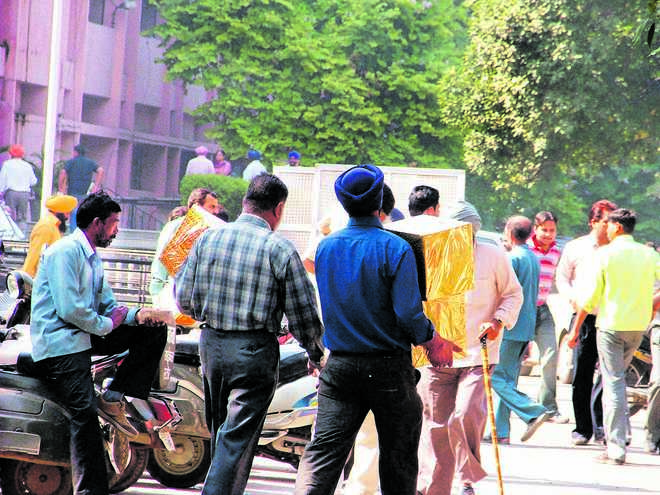Judge the gifts
In “Kaffeeklatsch” (October 23), an instance was given of how an innocent Diwali gift can sometimes put the journalist in a bind even when the gift, though not even to be used by him was not refused because refusal would be seen as graceless. I would like to highlight that the judiciary, especially the higher judiciary, should pay attention to inadvertently receiving gifts even from senior lawyers. Unless there has been a a mutual exchange of personal gifts and a relationship prior to becoming a judge.
In my opinion, all Diwali gifts must be refused to avoid giving the impression to the public of being partial to a particular lawyer or corporate house, even though the judge may never have met them.
I remember the first Diwali in October 1970, after I became a judge in the Delhi High Court in January 1970. I had gone out. When I came back home in the afternoon, my staff told me that a big basket full of fruits / sweets had been delivered. A very senior income tax lawyer’s card was pinned on it. I had never met him but had heard of him because he used to send the brief to my grandfather, a senior lawyer of the Punjab High Court. Even after I joined my grandfather's office, I never met him, nor did he send any brief to me, rightly because my specialty was not income tax. I was only angry at the impudence of sending a Diwali gift to me. Obviously, it was motivated. I had the basket sent back untouched. In mid 1970-80, the India Today Magazine used to bring out a Diwali annual diary, with useful information on various subjects. It was priced in the range of about Rs 1,000 (totally unaffordable for a judge, with a salary of Rs 3,000 per month at that time). It was delivered to me by the office of a senior lawyer. I politely sent it back, saying all this elaborate information was beyond my comprehension. The lawyer understood the implication. I never received it again.
It is not to say that even if a judge keeps a Diwali gift, it in any way affects his decision. It is outrageous to suggest it. But it is the mischievous public impression these gifts create that has to be scrupulously avoided. Even social organisations misuse the Diwali-gift syndrome. For example, invitation cards to participate in the Dushhera celebrations are sent along with ladoos (normally a harmless exercise). But the ladoos are sent in expensive containers and not in the usual cardboard cartons. So as not to offend religious feelings, the invitation card and one ladoo was kept but the container and the rest was sent back through the same courier. I am of the view that the practice of Diwali gifts by corporate houses to government servants should also be banned. Similarly, the judges by an in-house decision (already existing) should reiterate publically that any Diwali gifts sent by an outsider to the family will be considered an act of impropriety, unless it is from friends or relatives with whom mutual exchange of Diwali gifts already exists.
The writer is a retired Chief Justice of the Delhi High Court.
Unlock Exclusive Insights with The Tribune Premium
Take your experience further with Premium access.
Thought-provoking Opinions, Expert Analysis, In-depth Insights and other Member Only Benefits
Already a Member? Sign In Now










